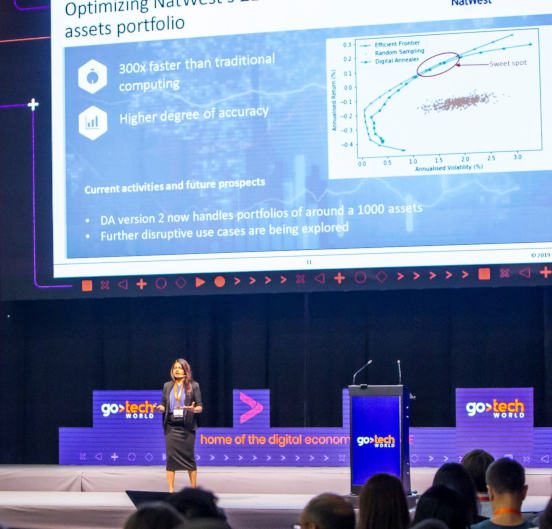
Quantum computers come in 2 varieties, quantum annealers and quantum gate models. So far, DWave is the only company selling quantum annealers.
A third type of device is now available from Fujitsu. Fujitsu calls its device a “quantum inspired digital annealer”. The Fujitsu device does not have any quantum correlation (quantum entanglement) between separate qubits, so, in that sense, it is not a real qc, and Fujitsu doesn’t claim it is, only that it is “quantum inspired”. DWave, on the other hand, does claim partial quantum entanglement between the separate qubits of its annealer. The Fujitsu device is an optical device which operates at room temperature whereas DWave and most gate model qcs to date operate at milli-kelvin temperatures. Such extremely low tempreatures require expensive refrigeration equipment to maintain.
For the foreseeable future, gate model quantum computing hardware companies that already have devices (IBM, Google, Rigetti, IonQ, Intel, etc.) will only offer what they refer to as NISQ (Noisy Intermediate Scale Quantum) quantum computers. Such computers perform only partial or no error correction on their qubits. qcs are very prone to error. Eventually, in the far future, the aforementioned gate model qc companies hope to develop FTEC (Fault Tolerant Error Corrected) qcs, which are qcs that are fully error corrected. FTEC is an onerous task; so far, the best methods for doing FTEC utilize as many as 1,000 noisy “physical” qubits to produce a single, noise-free, virtual (“logical”) qubit.
There are many companies that do portfolio optimization with classical MCMC (Markov Chain Monte Carlo) ; for example, Quantopian, based here in Boston, where I live.
Portfolio optimization has been proposed by 3 competing factions, 1. DWave, 2. Fujitsu and 3. the NISQ qc hardware companies, as a task that could be performed more economically or faster with their devices than with current classical computers.
Are these 3 competing factions right about beating classical computers, and who of the 3 can do it better?
The purpose of this article is not to answer this question, but rather, just to pose it, and to stress that the FinTech industry is very interested in its answer. The 3 competing factions should be very interested in answering it too, because their profitability in the near term future might depend on its answer. Indeed, if, for example, it turns out that Fujitsu is much better than the other 2 factions, Fujitsu could end up denying, to the other 2 factions, any significant market share in the affluent and lucrative FinTech industry. Fujitsu might deal a crushing blow to the nascent qc industry, and to the other annealer company, Dwave.
Of course, if our dreams of building the fabled fully-error-corrected qcs ever come true, then those fabled qcs will be able to perform, according to the scientific theory, much better than the devices of the 3 aforementioned factions. But that is a distant pipe dream for now.
